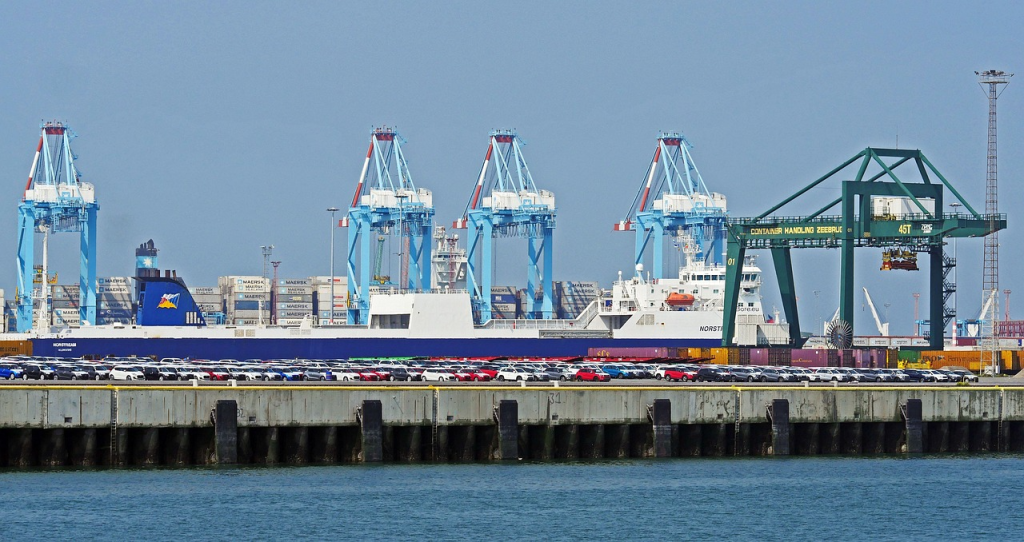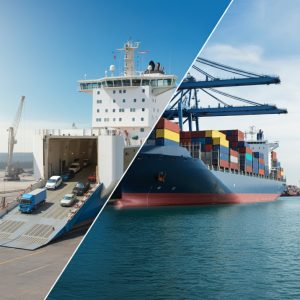Top Car Shipping Trends in Africa: What Importers Must Know
Car shipping has had a great leap in demand around the world. This surge can be attributed to urbanization, infrastructural development, and an increase in demand for personal vehicles.
In the African car shipping scene, things are moving fast. Countries like Nigeria, Morocco, South Africa, and Kenya are taking the lead in the African car market, with Morocco and South Africa leading in export, while Nigeria and Kenya are major car importers. In fact, more people want cars for personal and commercial use. Major ports in countries like Nigeria are filling up, and governments are tightening the rules.
Therefore, at this time, it is essential for importers to understand regulations and compliance in the shipping process and adapt to market changes in each country. This guide breaks down the biggest car shipping trends shaping Africa right now, factors influencing car shipping to Africa, the challenges importers face, and the steps to take to stay profitable in 2025 and beyond.
Rising Demand for Vehicle Imports
It’s a fact that demand for car imports is high at this time, and the Nigerian market is on this list. The Nigerian Ports Authority (NPA) disclosed that a total of 1,350 vehicles were expected to arrive at Tincan Island Port between July 19 and July 21, 2025. This high demand is due to the following reasons:
- Africa’s cities are growing with young and agile people who need affordable transport.
- Ride-hailing apps like Uber and Bolt have changed the game, and everyone wants reliable, fuel-efficient vehicle models.
If you’re importing vehicles in 2025, don’t just chase volume; focus on the right cars for the right buyers.
Factors Influencing Car Shipping Trend in Africa
Car shipping to Africa has become a growing industry, fueled by the continent’s rising demand for vehicles and the expanding auto import market.
From Lagos to Nairobi, more individuals and businesses rely on imported cars because of cost advantages and wider options compared to local supply.

Here are three key factors that shape the flow of vehicle shipping in Africa:
Vehicle Affordability
One of the biggest drivers of car shipping to Africa is how affordable vehicles are for buyers. In many African markets, consumers lean towards used cars shipped in via Europe, Asia, and the US, which often cost far less than brand-new imports.
This explains why the African car market thrives on the sale of used cars. Buyers get value for money, while importers benefit from steady demand.
Regulatory Environment
How cars are shipped and sold is determined by the regulatory environment in each African country. In other words, import laws vary widely. Some countries restrict vehicles older than a certain number of years to promote road safety and reduce emissions, while others impose customs duties and stricter documentation.
For example, African countries like Nigeria and Kenya have placed an age restriction on imported vehicles. Still, some countries use vehicle emissions standards for used vehicle imports.
Market Demand
As discussed before, car shipping to Africa is expanding due to high consumer demand through rapid urbanization, population growth, and an expanding middle class.
In many African cities, a car is more than just a mode of transport; it’s a necessary means for mobility.
Whenever demand rises, shipping companies and dealers increase supply, moving more vehicles into African ports. However, during economic downturns or fuel price spikes, demand softens, and the pace of imports slows down.
Trends Changing the Car Shipping Game
There are new trends shaping and changing car shipping in Africa today, which must be considered by importers who don’t want to just import cars but do so smoothly.

Competition for Used Cars is Fierce
Africa isn’t the only one chasing Japanese and European used cars. Asia and Latin America also want them, so importers need to secure the supply early.
Ports Are Overloaded
It should be noted that ports are always busy and often overcrowded at this time. So importers need to switch to alternatives like the Lekki Port (Lagos), Walvis Bay (Namibia), or Port Harcourt (Nigeria). These “smaller” ports often mean faster clearance with less stress.
Digital Tools Are Becoming Non-Negotiable
From AI-powered cost calculators to blockchain customs systems, digital is the new standard. Importers who track shipments in real-time and utilize digital cost forecasting tend to run leaner operations.
Stricter Standards, No Shortcuts
Cars that don’t meet age or emissions rules aren’t just fined but are rejected outright. Skipping compliance is no longer worth the risk.
Fuel Prices Are Shaping Demand
Large SUVs used to be hot sellers. Now, with rising fuel prices, demand is swinging toward compact and fuel-efficient cars.
To learn more about new trends, you can read more here: 2025’s Logistics Revolution: 8 Trends You Need to Know to Avoid Costly Mistakes: Expert Tips For Nigerian Car Imports
The Challenges Importers Still Face
Even with these opportunities, importers deal with so many challenges that make their work really difficult.
Some of the challenges are forex swings that change margins overnight, fraudulent agents who disappear with fees or fail to clear goods, and customs clearance that may drag for weeks.
What Should Importers Do Differently in 2025?
Importers who want to stay ahead in 2025 should do the following:
- Research not just the car but also the rules and costs in the destination country.
- Partner with experienced logistics providers for a smooth car shipping experience, not just whoever offers the lowest price. Here, Prraelogistics is committed to providing an exceptional and smooth experience.
To learn more about things to do and mistakes to avoid while car shipping to Nigeria specifically, go through this article: Avoid Costly Mistakes: Expert Tips For Nigerian Car Imports
Guidelines for Easy Car Shipping to Africa
Importing cars into African countries in 2025 requires importers to navigate a complex landscape of regulations, costs, logistics, and market realities. Here are guidelines for shipping a car effortlessly to Africa, which importers must abide by strictly.
Regulations and Compliance According to National Restrictions
Many African countries strictly regulate the import of used cars to protect local industries, public safety, and environmental standards.
For example, Nigeria enforces a strict 10-year age limit on imported vehicles, allowing only cars manufactured in 2015 or later.
To avoid import bans, importers must compile essential documentation, including the original vehicle registration, proof of ownership, bill of lading, invoice, and a valid import permit, as required.
Customs clearance often depends on exact Vehicle Identification Number (VIN) details submitted for proper valuation and duty calculation.
Some countries require inspection certificates to prove roadworthiness, emission compliance, or conformity to local standards before registration.
Also, working with reputable clearing agents experienced in the destination country’s regulations can greatly simplify paperwork processing and compliance.
Cost and Budgeting
Import duties vary widely by country and vehicle classification (age, engine size, fuel type). For instance, Nigerian import duties range from 5% to 35% plus VAT and other charges.
Budgeting for miscellaneous costs such as marine insurance, inland transport from the port and local registration fees is essential to avoid surprises.
Vehicle age and condition have a significant impact on costs. Newer cars generally attract lower duties and provide better cost predictability.
Logistics and Shipping
Vehicles are commonly transported to Africa via maritime shipping, either in containers for protection or Roll-on/Roll-off (RoRo) for cost efficiency.
After reaching destination ports (Lagos, Tema, Durban, etc.), vehicles are transported inland by road or rail, depending on infrastructure and distance.
Importers must assess transit times (often 30-45 days from shipment start to delivery) and verify the reliability of local logistics providers and customs clearance agents.
Planning for delays related to inspection, port congestion, or compliance issues helps avoid additional holding costs.
It’s a smart move to partner with experienced logistics providers specializing in African routes to navigate infrastructure and smooth delivery experience.
Conclusion
Car shipping in Africa is booming, but it’s no longer business as usual. Importers who understand demand shifts, manage costs wisely, and embrace digital tools will thrive. Those who cut corners risk delays, fines, and extreme difficulty. It’s better to import smarter, not harder.






Post Comment